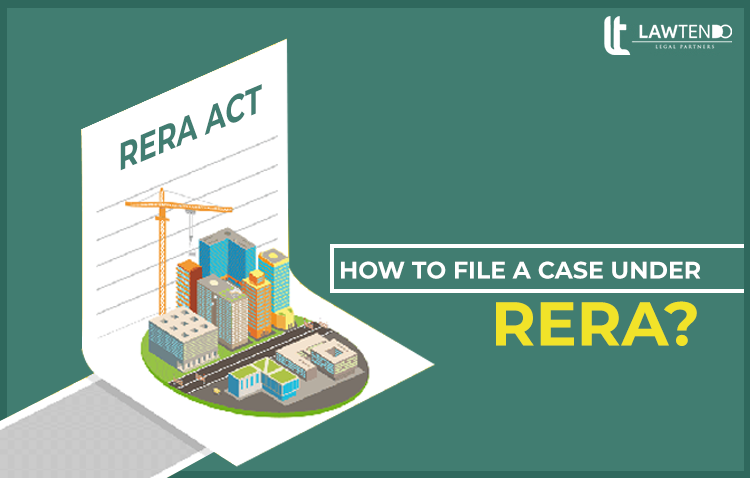How to file a case under RERA?

Date : 17 Mar, 2020
Post By Adv. Prema K.

Advocate Anusha
Experience: 2 years
Location: Bangalore Urban, Karnataka
Court: Central Administrative Tribunal (CAT) Bangalore, Karnataka High Court
Practice Area: Divorce And Alimony, Landlord And Tenant, Property Dispute, Corporate Law
Language Proficiency: Kannada, English, Hindi
Availability: Mon to Fri: 9am to 5pm
The real estate business is an ever-growing and ever-expanding sector in India. With new players coming into the business each day, the diverse options and alluring projects can take a toll on your hard-earned money if you are not careful. However, to protect the buyer’s interest, enhancing professionalism and ensuring transparency in the real estate sector The Real Estate (Regulation and Development) Act, 2016 was passed. The enactment of The Real Estate (Regulation and Development Act) 2016, (“RERA”) brought hope to many buyers, as the act created a separate authority in which real estate disputes could be heard quickly and efficiently, rather than traditional civil courts which often take years to dispose of matters. How has RERA made a difference? Under the RERA Act, if a builder or promoter violates the law, the aggrieved party can file a case with the Regulatory Authority or the designated Adjudicating Officer directly instead of having to make multiple rounds of various government bodies and courts. It is thus recommended that the complainant must avail the services of an expert lawyer familiar with RERA to assist him/her in the process. The complaint against a builder or promoter can be filed with the RERA authority under whose jurisdiction the property falls. The complaint can be drafted in a format that has been prescribed under the State Rules supplementary to the Central Act. What does a complaint under the RERA Act contains? Every complaint under the RERA act shall mandatorily have the following information: 1. Buyer’s details- name, address and other requested information Important point to remember when filing a complaint under the RERA Act There is a prescribed fee to be paid, for every complaint which varies from state to state. The online RERA portal also differs from state to state and there are procedures for the online filing, which the lawyer will know about and ensure that the application is filed correctly. Note that to get compensation, the complaint also has to be filed with the Adjudicating Office. The format is the same as the online application. All details relating to payments already made to the defaulting party, interest amounts, compensation sought etc. must be filed at the onset itself. The advantage of separate tribunals and authorities under RERA is that the complaint must be disposed off within a period of 120 days, this makes for speedy resolution of the matter. So there is no reason to be daunted by the change in-laws, it would make more sense to take advantage of the new buyer-friendly format. The author of this blog is Adv. Prema K. having an experience of 17+ years in handling Rera related matters from her experience she wants to share this beneficial information for the individuals having any issues with respect to Rera related matters.
2. Address of the project
3. RERA Registration number (kindly note that one can no longer legally buy a new property which is not registered)
4. Facts of the complaint, giving rise to the cause
5. The relief sought





